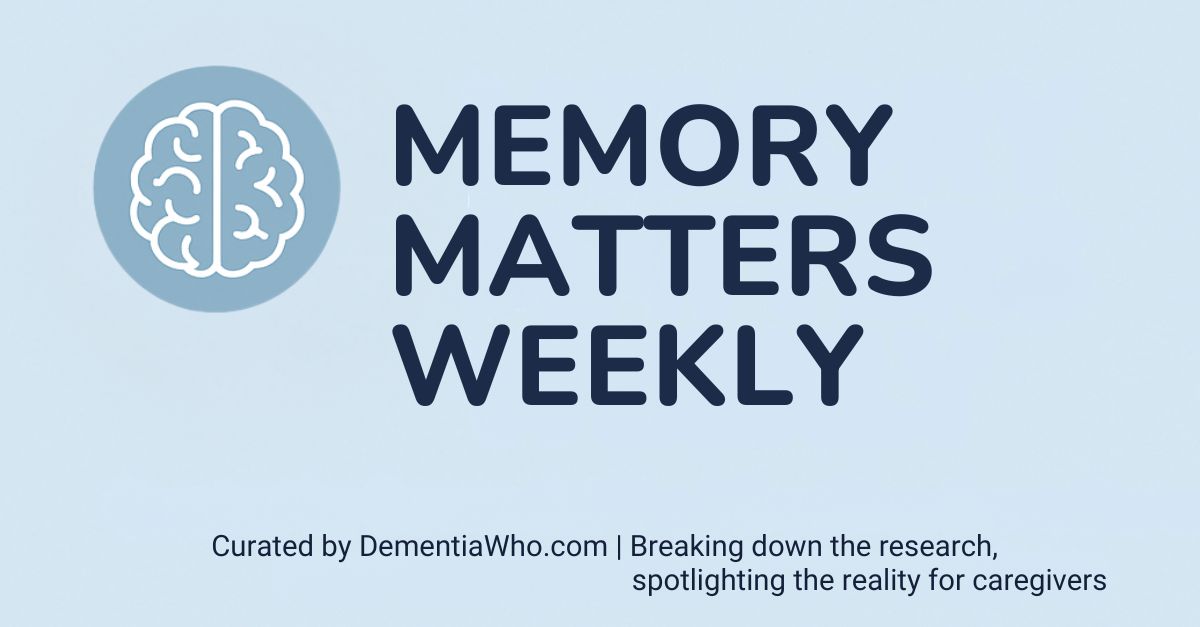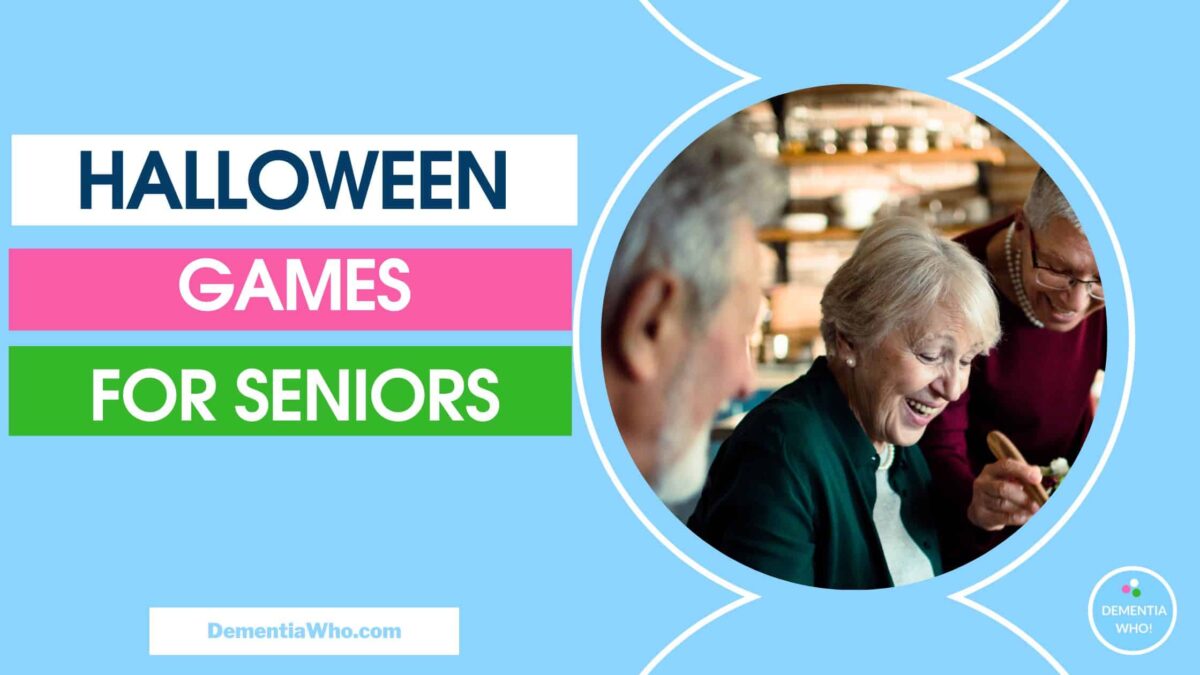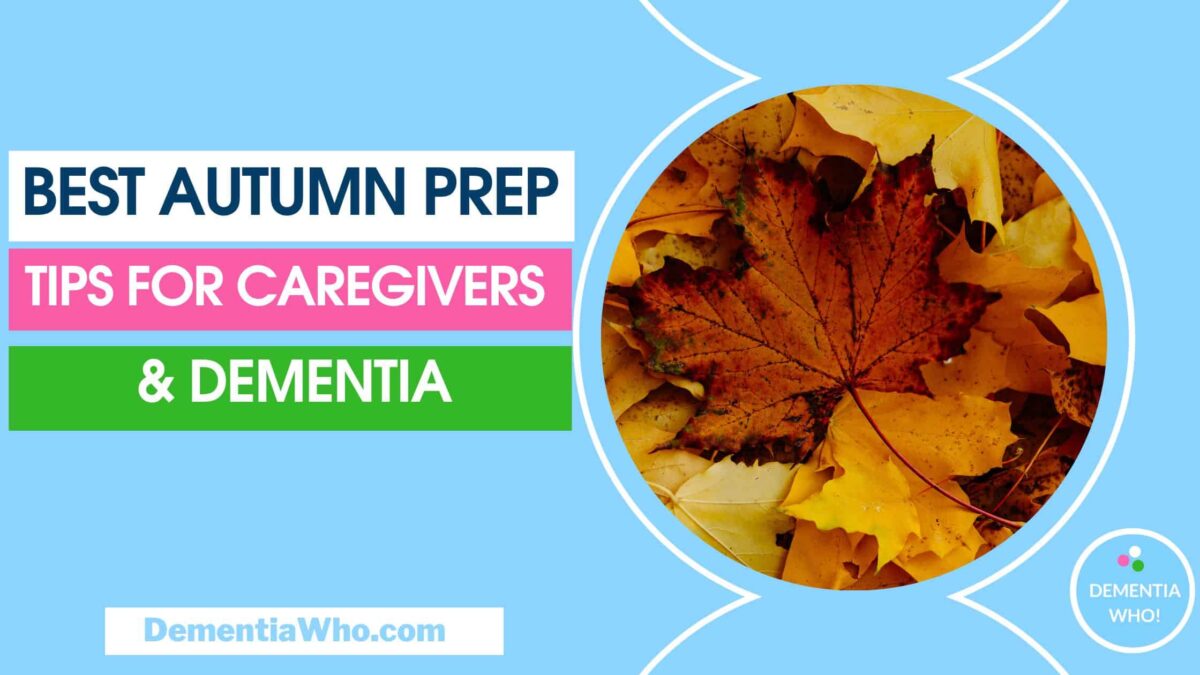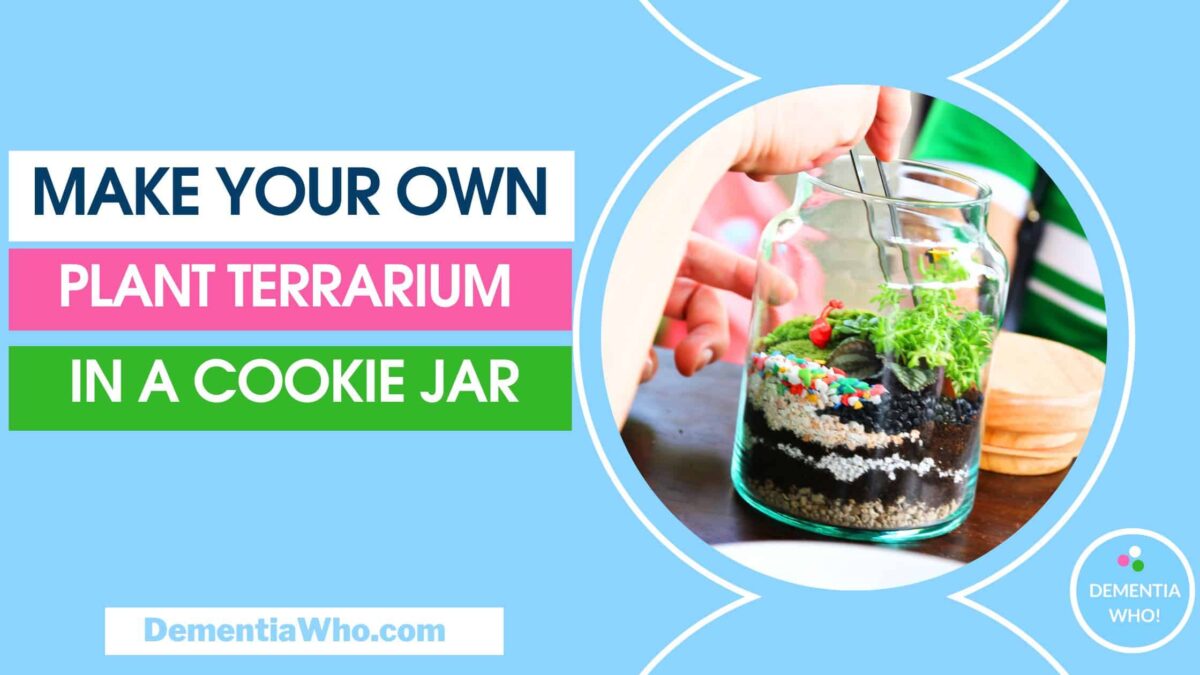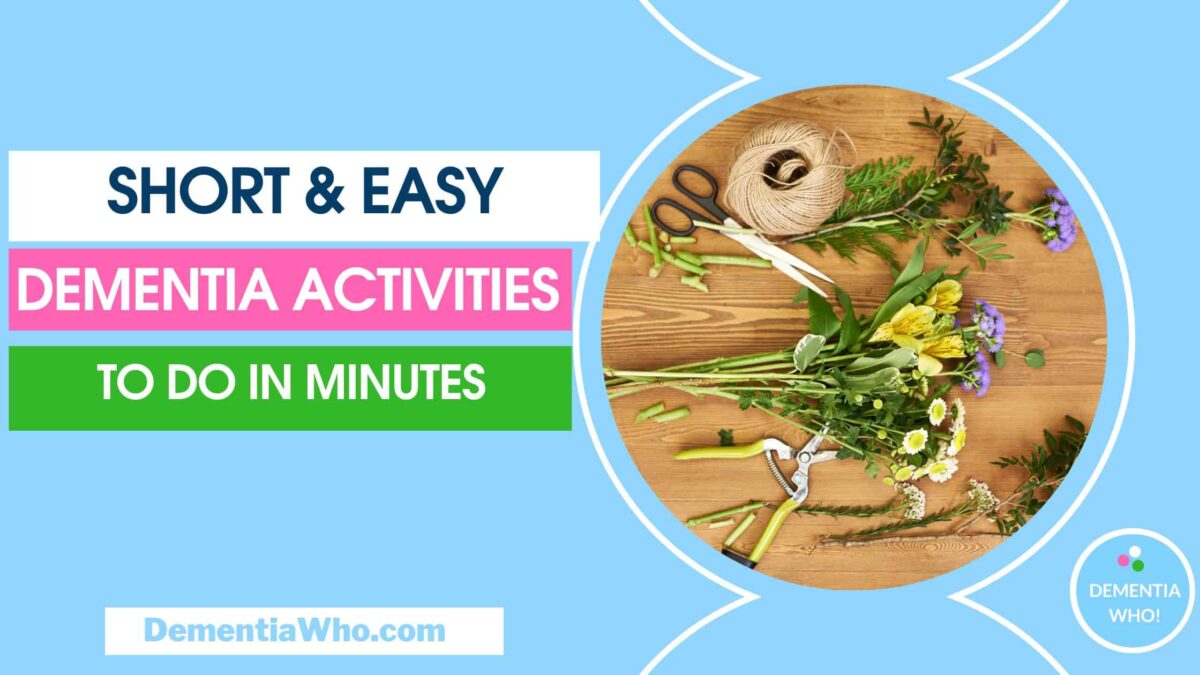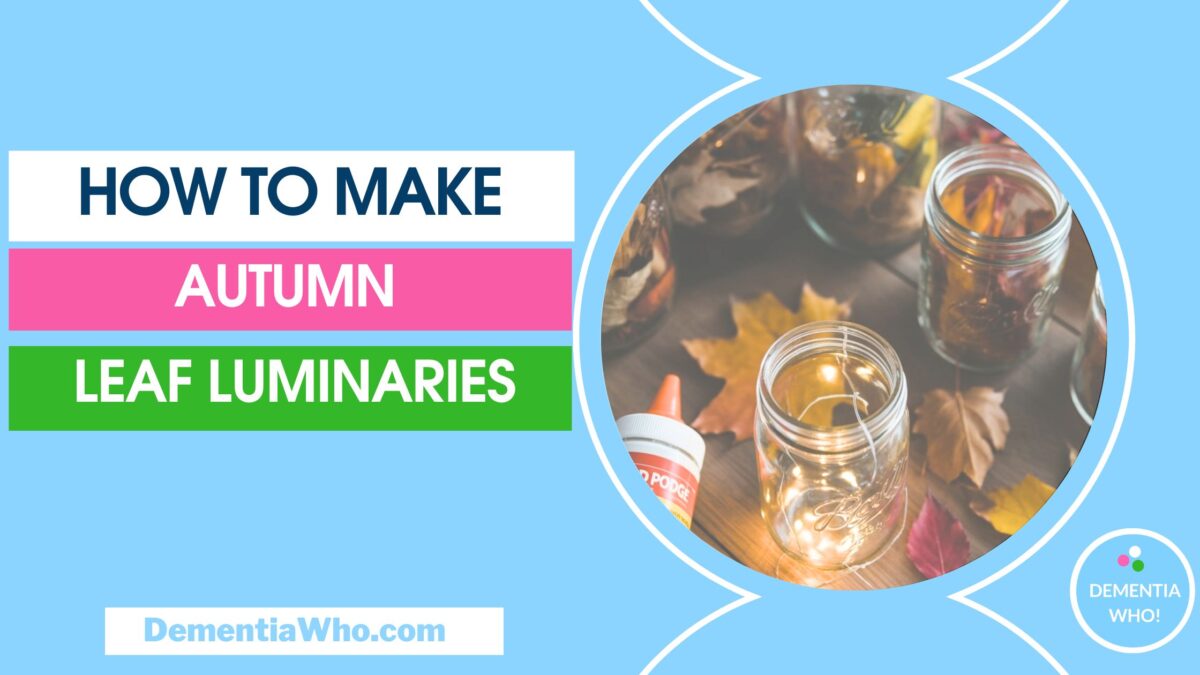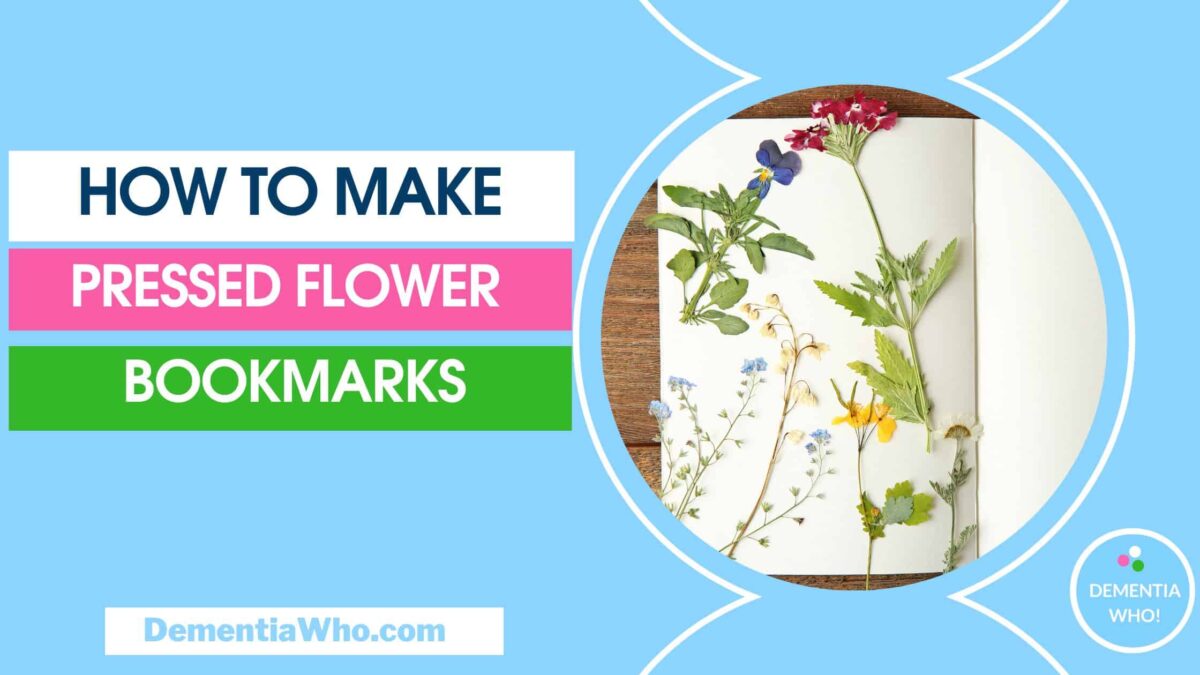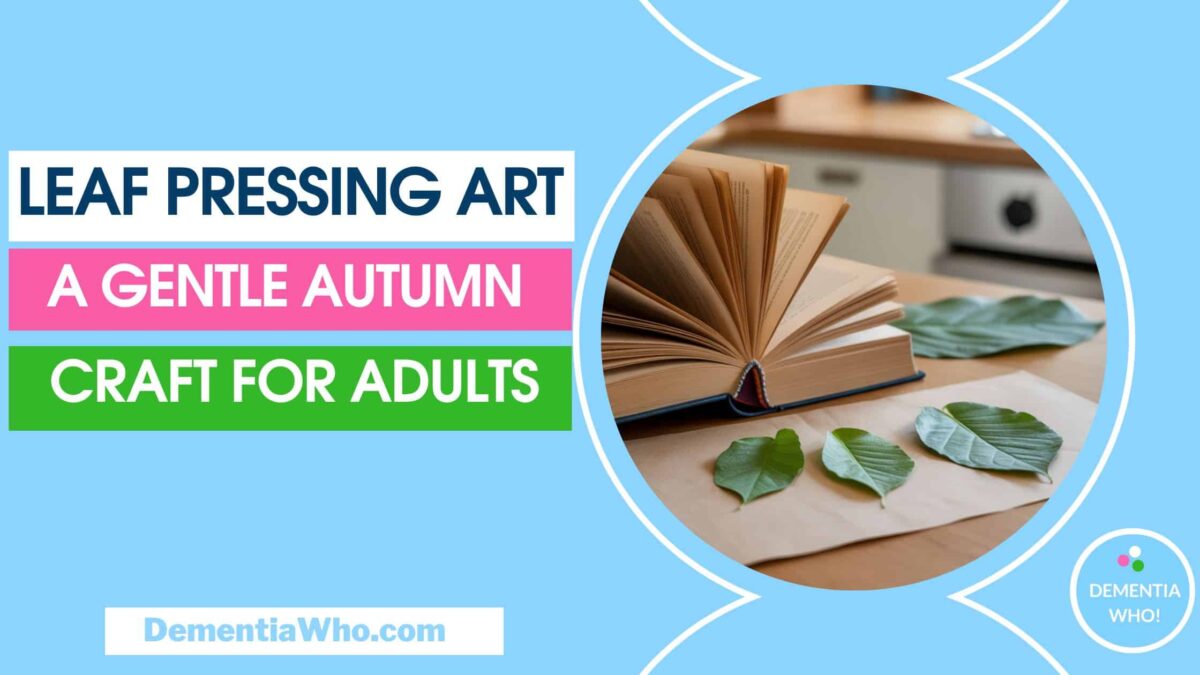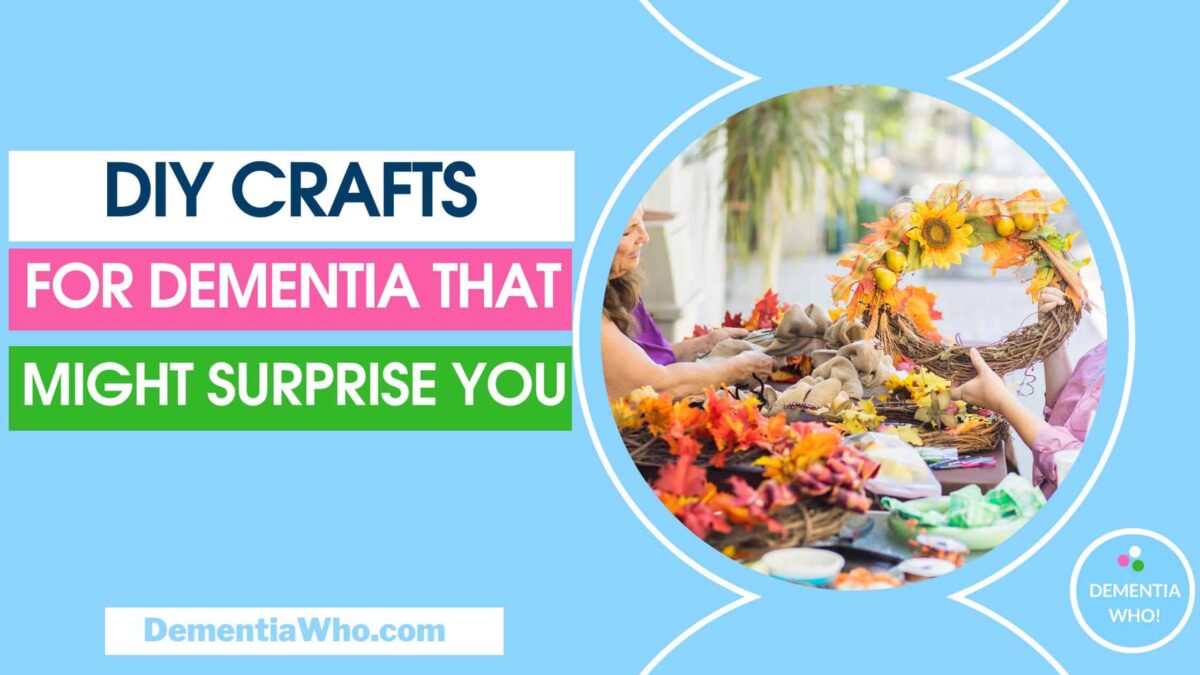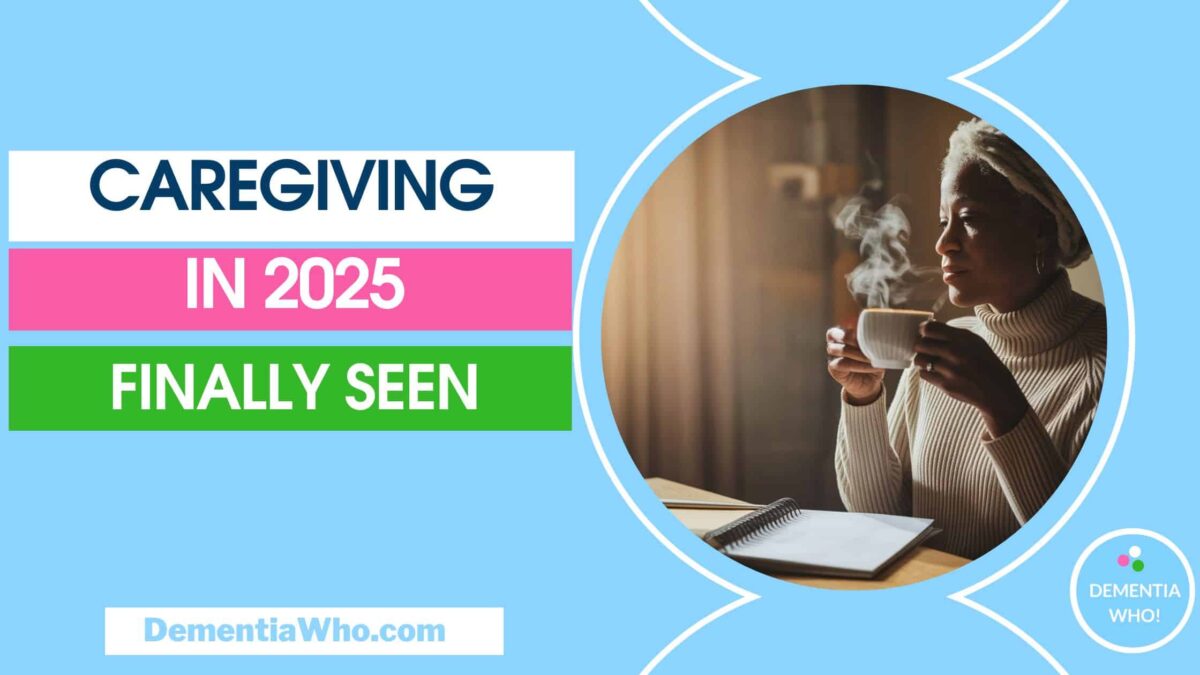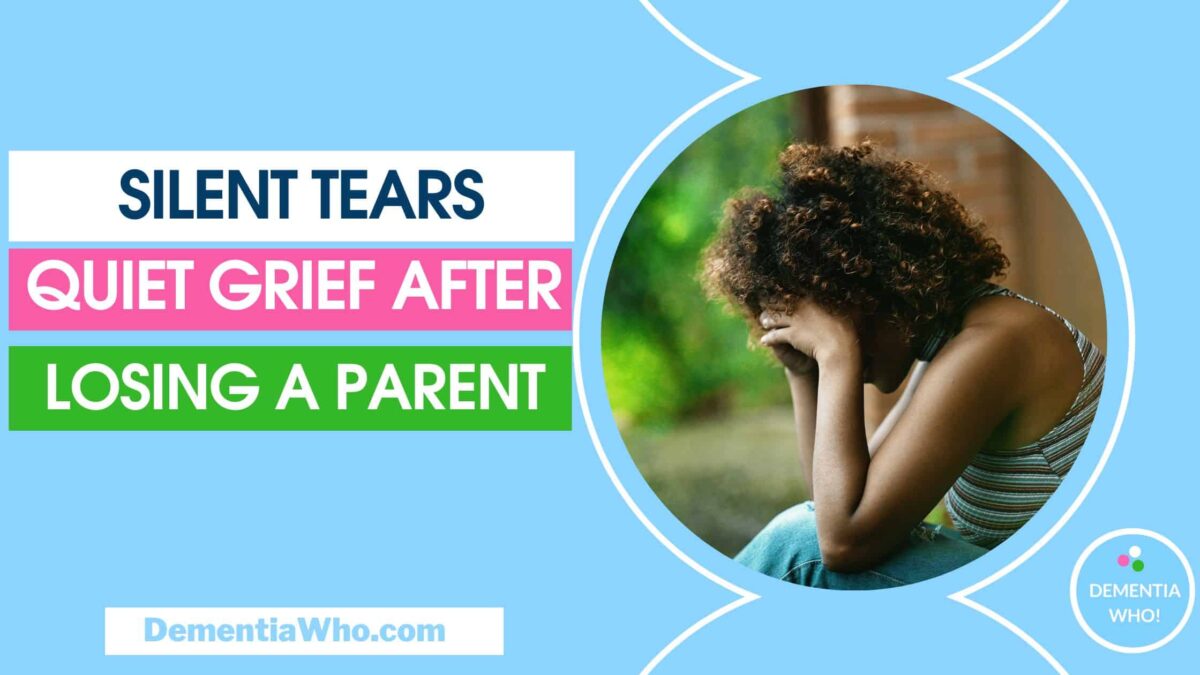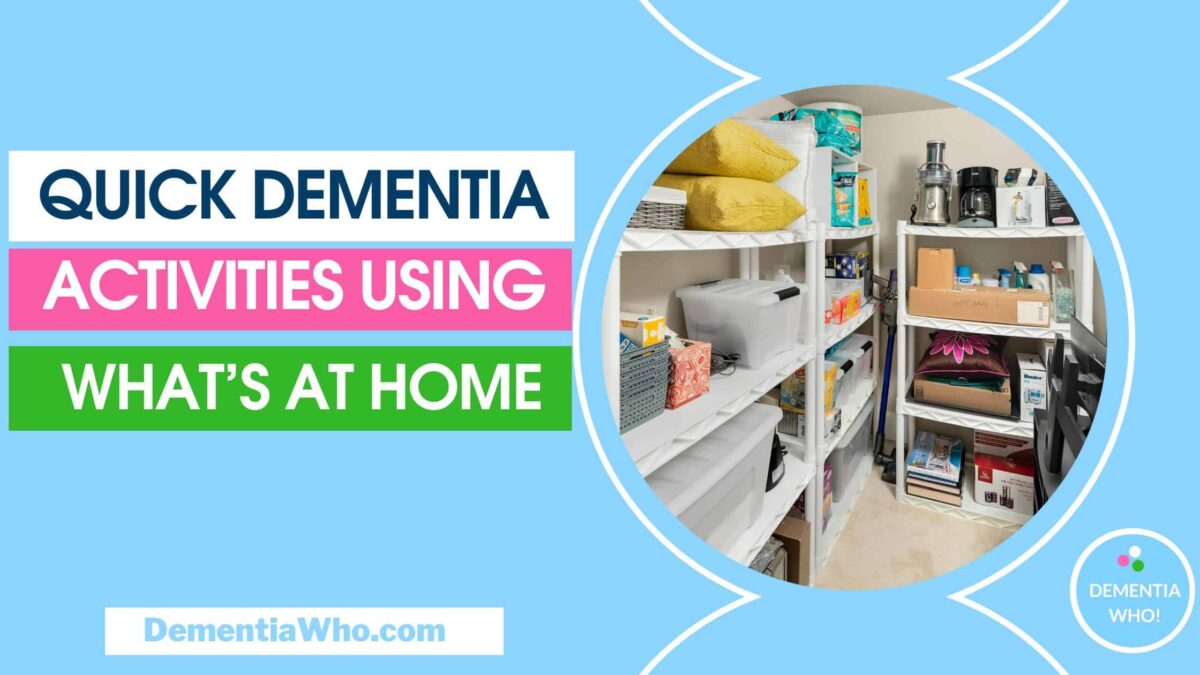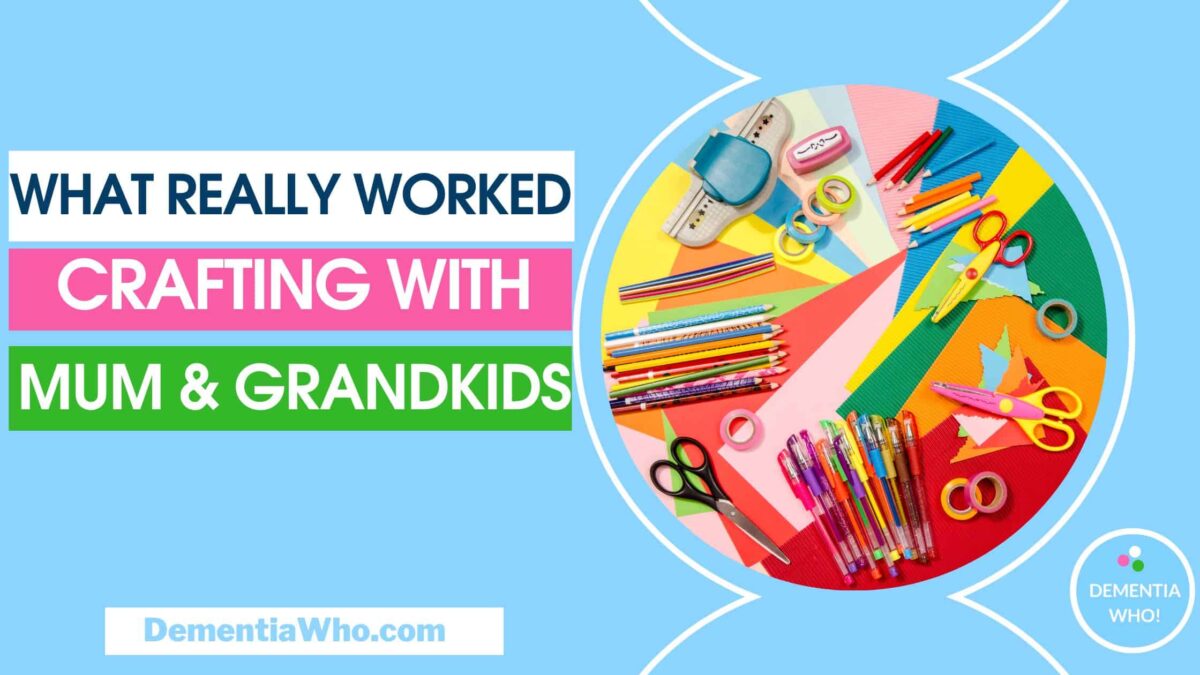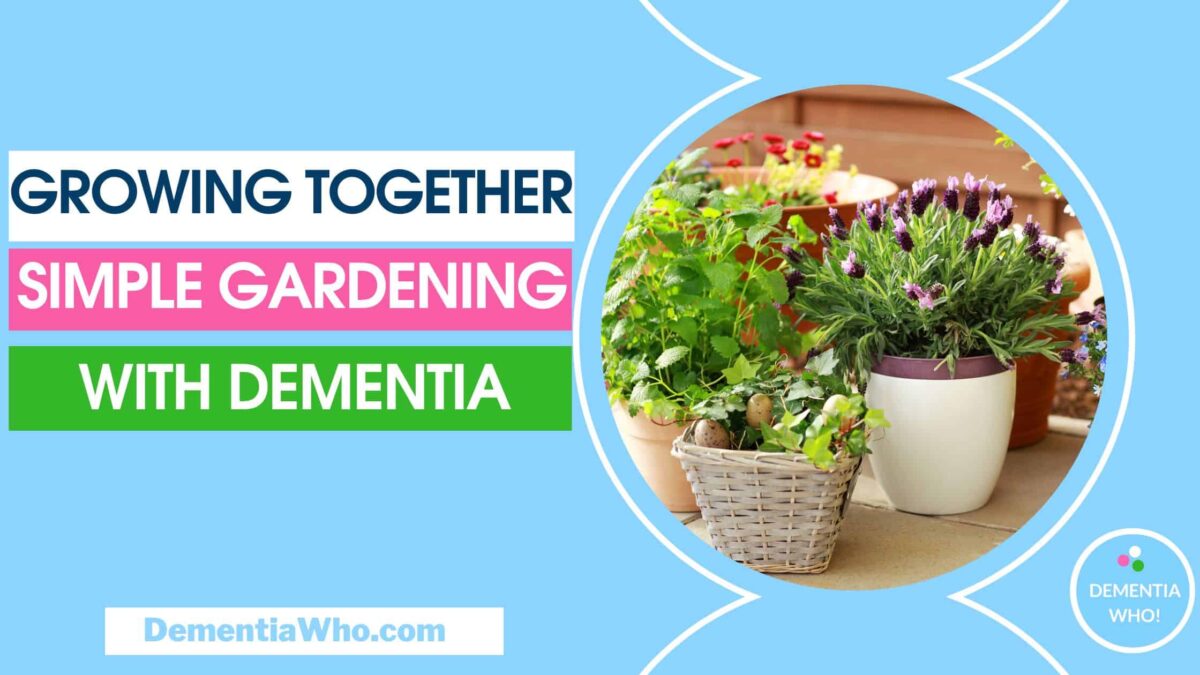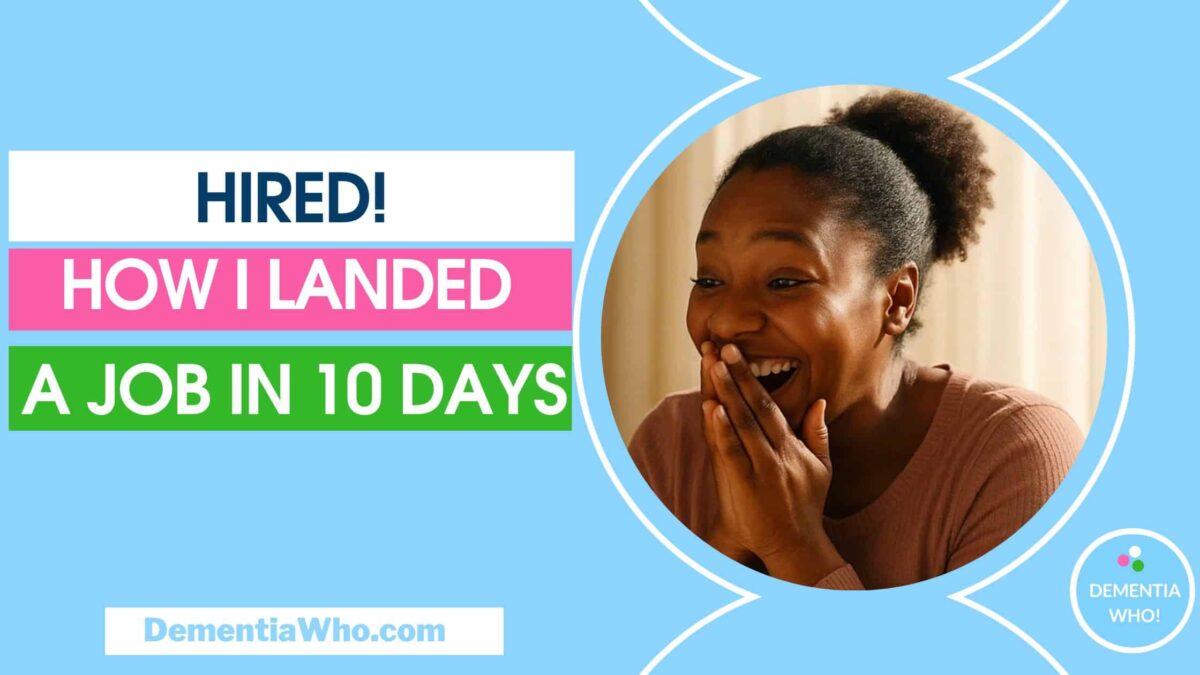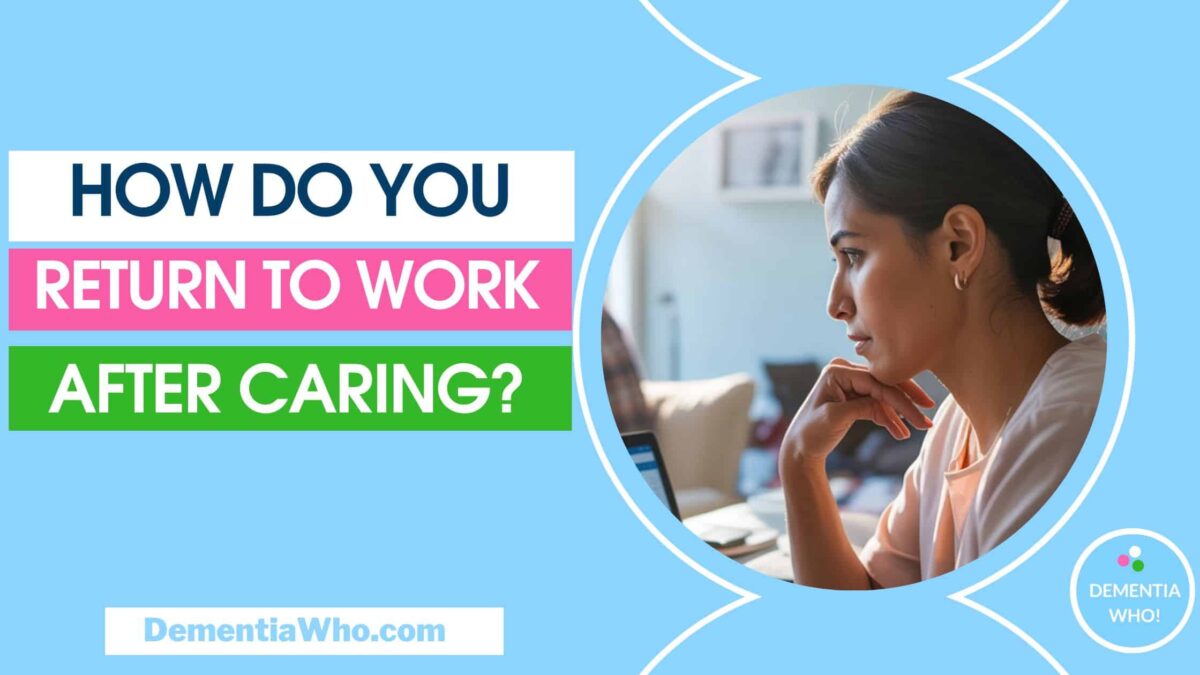I’m a dementia caregiver, and here’s a snapshot of my day, a caregiver morning routine. I’m sharing everything that I do every morning caring for my mum living with Alzheimer’s disease. I hope by sharing that it helps others understand the role of a caregiver.
This is just a snapshot of one caregiver’s life. There are so many variations of care, those who work and care, those who care for both elders and children, those with disabilities that care for others and those who care for multiple people with disabilities, etc. There isn’t a one size fits all caregiver. Each face their own unique situation and provide what they can physically & emotionally.
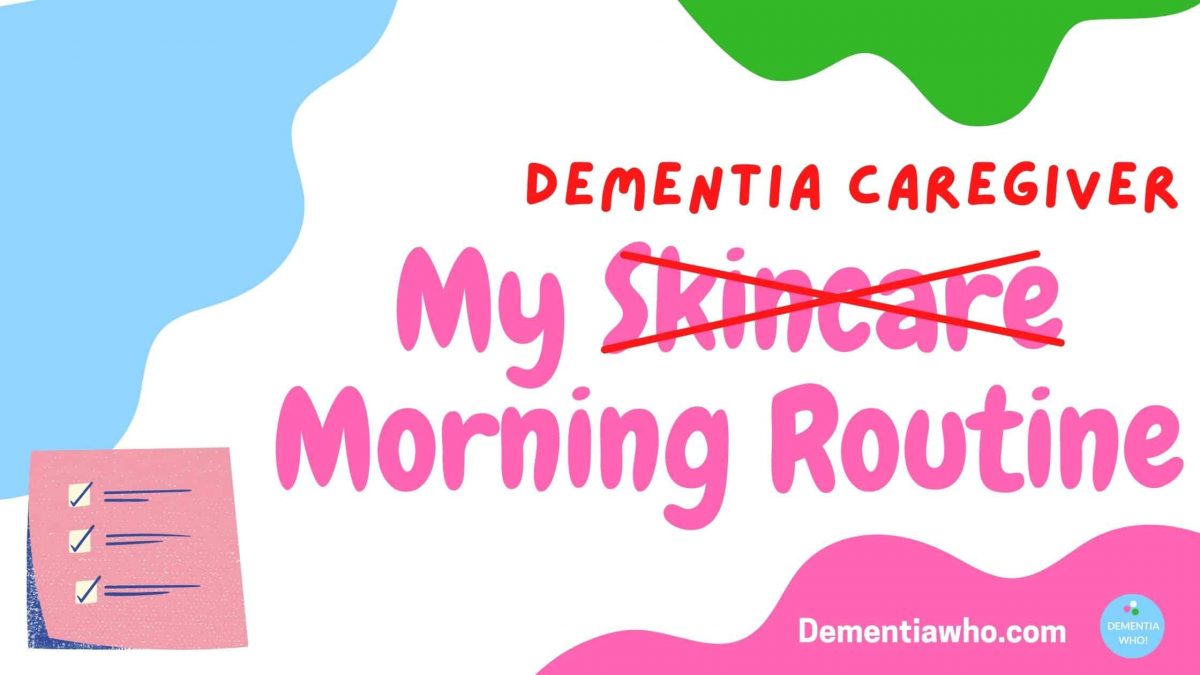
Self Care – Morning Pages
Before I do anything else, I write my morning pages. I write down or journal everything that is in my mind. It could be planning for today, what I’m grateful for, or things worrying me. Whatever comes out is written down and then destroyed. It’s pretty cathartic.
I like the idea of a clean start in the morning, so I pour everything out into that and then rip it up, symbolically getting rid of it. Whatever method you use that works to get rid of whatever is on your mind. It helps provide clarity in other areas. It’s the first part of my self-care for the day.
Was it a Bad Night – 6am Checks?
At 6 am, I go in and check on mum. Was it a bad night? I know if it’s a bad night if either mum’s still awake or she’s asleep, and all her covers are in disarray or pushed off the bed. This means that she’s woken at some point during the night and tried to get out of bed, but she can’t due to her disability. She’s probably cried out for me, but I didn’t hear her.
Heartbreaking to realise that might have happened, that no one came to help her, that she was most likely scared. I touch her skin, and she’s freezing. I cover her up. Guilt is something always on my mind. Why didn’t I hear? Checking twice last night wasn’t enough -why didn’t I check in on her again?
Medical Checks
I gently wake her and swipe on her diabetes sensor to check her sugar levels overnight. After six months of a steady straight line at night, this is a new worry for me. She experienced a massive dip in her levels one night and went into what they called a hypo when she slept. So now I’m more vigilant at watching her levels overnight, checking her more frequently and increasing her carbs before bedtime.
I explain that I need to give her a suppository. She’s half-asleep but nods her acceptance. Gloves on, wipes, toilet paper, suppository and disposal bag ready and on hand. I pull and roll mum over onto her side using a slide sheet, give her the suppository, cover her up, turn the light off and let it do its work. Mum will fall back to sleep, and I’ll keep checking in on her.
Supermarket Delivery
Busy day today ahead, so I start to get ready, quick shower, and get dressed before the supermarket delivery arrives. I don’t always get a chance to shower in the morning I prefer to spend that extra 20 minutes in bed, to be honest, especially after a night where mum hasn’t slept well. I try to shower the night before to save time or don’t do it at all sometimes when I haven’t slept at all because of my insomnia.
I like to get the supermarket delivery out of the way early, so I take the first available slot; usually, 7-9 am. Last week he arrived 10mins early whilst I was in the shower. Of course, this time, he doesn’t come until 8 am. I take the time to wipe down and put away the perishables before going back up to mum.
Physicality
Mum’s awake, and I need to decide whether to wait for carers or get mum ready myself. For safety reasons, mum’s personal care is carried out by two care workers. This is because it involves a lot of pulling and pushing and supporting mum whilst trying not to injure mum or myself: my back or other areas of the body.
I can’t wait for them to change her as they generally arrive after 10 am, and mum’s nappy needs to be changed. Physically, I’m alright today. Last week I’d pulled something in my shoulder, so I couldn’t move mum or support her one-handed whilst I removed her nappy or lean over to wash and then dress her.
Because I’m doing it alone, I have to pull mum to one side, work on that side, and then move around the bed to the other side to reach that area. I need to push, pull and roll her several times. Doing it alone causes mum more stress than when two people do it. If mum isn’t in the mood and doesn’t want to be changed or dressed, the process is even more difficult. That’s particularly true when mum is suffering the mental side effects of a UTI, which is the current situation.
But compare that to a few years ago, when the situation was much worse. Now I have the equipment to make mums life easier.
Today, we talked about her younger days, when she lived abroad and how young she was travelling away from home and working abroad for the first time.
Body Washing
Have you tried washing someone who has extremely sensitive skin? Well, that’s mum! We only give her a body wash every other day, and her hair is cleaned once a week. Today was also hair wash day!
Mum is essentially a dead weight when trying to wash her. She’ll try to help, but because of her condition, she really can’t lift any of her limbs herself. I give mum a sponge bath, stretching across the bed and supporting her limbs, straining my back in the process. Throughout the whole process, mum is alternating between chatting and complaining. She’s worried every time I roll her that she’s going to fall or the soft cloth I’m using is too rough!
I have to stop and reassure mum before I can continue to wash her. I cream her all over & examine her body for any changes. I need to check for new marks, welts, skin blisters and pressure sores, the bain of any caregiver’s life, and the most painful thing for your loved one to experience if it appears in specific areas like on your bottom. It’s best to catch it as early as possible before it develops into something worse.
I’m scared of anything developing because they take so long to heal and can be extremely painful for mum.
She has had a pressure sore on her heel for almost two years. It healed over, but then the skin broke again, any pressure sees the skins start to harden up and blister, and now we’re resigned to keeping pressure off it with a Repose boot (like an inflatable moon boot!).
I dressed it and added barrier cream to her pressure sore area, and got her dressed. It’s extremely physically demanding to get someone dressed whilst lying in bed trying to support them, but she helps me as much as she can.
Hair Washing Day
As it’s her hair wash day, I’ve decided to attempt the tilting commode again. You can read more on hair washing aids in this post here. This time, I hoisted her onto the tilting commode and moved her into the bathroom. I put towels around her neck and covered that with a plastic apron.
The scary thing about this chair is just the extent of the tilt. It is safe but scary as I feel she will tip over. Once I get over my anxiety, I use a jug and bowl to wet and shampoo her, praying that she’s not getting wet underneath. Mum is surprisingly calm now.
I feel she’s got a better wash today, and luckily her back & sling haven’t got wet at all, so I don’t need to redress her!
Yes, I finally nailed that. I bring mum down. I have to hoist her again from the commode chair to her recliner, adjust her positioning, put on her repose boot and keep her warm with blankets.
Grooming
It’s after 10 am now, and I need to give mum her meds & breakfast, but we need to brush our teeth first. I get a bowl and mum’s toothbrush and sit with her so she can copy me as I brush my teeth. She doesn’t want to, so I encourage her, persuade her, and show her I’m brushing mine. Once done, I give her breakfast, chatting whilst I wait to give her medication.
Medication
We have so many meds in the morning that sometimes mum refuses to take them outright or takes them and then spits them out when I’m not looking. So it becomes a game of knowing whether she’s taken them or not.
I explain what the tablets are for and decide to leave it for a while and try again a little later. The only problem is that mum’s sugars spike every morning, so I need to ensure that she takes the tablets promptly after eating to reduce the impact on her sugar levels. Eventually, we’ll get there, but it takes a while, so I distract her with what’s on TV.
Reassurance
Reassurance is one of the main parts of my caring role with mum. Dementia has increased her anxiety and fears. If she doesn’t see me for more than a few minutes, she assumes the worst, like I’ve left her. It’s a cruel disease.
Mum calls for me as soon as I try to make lunch in the kitchen. Every 5 minutes, she calls for something – to help her, tell me something, or help her go to the toilet. I’m ping-ponging between the kitchen and the living room, trying to reassure mum. Back and forth, back and forth, until I finally convinced her to come and help me.
I hoist her into her wheelchair and bring her into the kitchen. We talk about mum’s cooking, and she loves to boss me about it as she attempts to chop a courgette. I make tea while cooking and have a natter about the spices she suggests I use. Another morning where I’ve skipped breakfast again or have it whilst doing something else.
Exercise
The last part of our morning routine is to get some exercise in. Mum has a love/hate relationship with our seated exercise bike. Her leg muscles have atrophied and need to be exercised every day. This is the one thing that does slip of the radar when I’m busy or we have a toileting incident in the morning.
It’s another area for my guilt, as mum needs to exercise for 30 mins on her arms and legs at least every other day. If I’m lucky she wants to exercise and I sit with mum encouraging her all the way. The whole time she’s laughing at my impressions and telling me to shut up. She runs out of steam in the last 5 mins. But I’m proud of her for trying even when she’s not in the mood.
So that’s our morning routine. We follow a routine every day that usually ends close to midday. It’s a lot of hard work, sometimes guilt-ridden, but has a lot of love & fun in the middle.
The hardest part is the emotional challenge, trying to soothe someone who doesn’t remember they can’t walk, can’t go the toilet or be left alone and also trying to make time to care for your mental health.
I know that I’m luckier than others, it’s an awful thing to say but I don’t know how I’d manage with mum being physically mobile. The idea of mum wandering terrifies me. That’s a challenge others face.
Some caregivers do much more; some carry out medical procedures like nurses. Some are warrior advocates, cleaners, cooks, companions, entertainers, and cherished loved ones, but we are all forgotten by those in government who can help us.
I’m grateful that I get to be with mum now, that I learn more about her, and she learns more about me at this stage in our lives. I know that the skills I’ve learned here will help me in the years to come. It’s made me more compassionate, less selfish and given me the energy to learn new things every day. I am a better person for it.
But, I still need to carve out and utilise that time dedicated for me, rather than sleeping or lazing on the sofa or reading/responding to Twitter which I do daily (excellent support site for #unpaidcaregivers, I suggest you check out hashtag #alzchat or #diversealz for dementia/caregiver – support & innovative ideas for help on Twitter!)
I started blogging again as a new focus & challenge just for me at the end of this year.
And the final thing, I was reminded yesterday, that I’m not just a caregiver to mum, I’m her daughter, and on a good day, I’m Kat.
Most people think the physical challenge is the hardest part, it isn’t but I would advise you to get evaluated by an occupational therapist to make sure you’re doing things safely and have the right equipment.
Some days are perfect, and others are harder than others, but you learn to live with it as a caregiver and savour those good days with your loved one.


